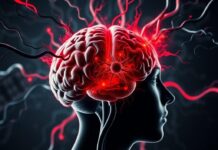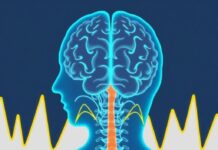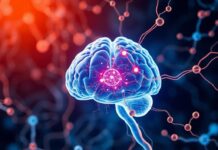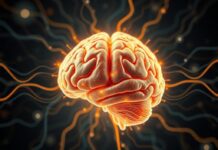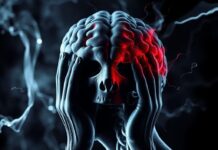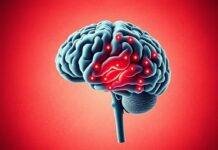Growing older brings a lot of changes — some joyful, some frustrating, and some downright mysterious. One of the scariest mysteries for many people is the way the mind seems to change: misplacing keys more often, pausing mid-sentence, or forgetting an appointment. Is this simply a normal part of aging, or is it the start of something more serious? In this article I’ll walk you through what healthy aging of the brain looks like, how to recognize when something may be wrong, what can cause reversible decline, and what you and a doctor can do to slow or manage changes. Take a breath — understanding this topic can reduce fear and help you act early when needed.
Содержание
Why we worry about memory and thinking as we age
It’s natural to worry when you or someone you love starts having trouble remembering names or following complex conversations. Culture often frames memory loss as the most feared part of growing old, and headlines about Alzheimer’s disease amplify that fear. But not every slip in memory is a signal of dementia. The brain changes with age — some of those changes are harmless, some are manageable, and some deserve medical attention. Knowing the difference helps reduce unnecessary panic and identify problems when early treatment can make a real difference.
Every story begins with everyday life: forgetting where you left your glasses, needing more time to learn a new smartphone feature, or struggling to multitask like you used to. These experiences are common. They are also often reversible or manageable with simple changes. The goal here is to help you spot patterns and degrees of change, so you can protect cognitive health and seek help when it matters.
How normal aging affects thinking
Aging affects many parts of the body, and the brain is no exception. Some cognitive changes are part of the normal aging process. They come on slowly and do not severely disrupt daily life. Examples include:
- Slower processing speed — it may take more time to react or retrieve information.
- Mildly reduced multitasking ability — juggling many things at once becomes harder.
- Occasional forgetfulness — like not remembering a name immediately but recalling it later.
- Small declines in episodic memory — details of new events may fade faster than before.
- Changes in attention — sustaining focus for prolonged tasks can be more tiring.
These changes tend to be subtle and progress slowly. Importantly, they don’t prevent you from living independently, working, managing finances, or maintaining close relationships. When cognitive changes remain within those limits, they are generally considered part of normal aging.
Why these normal changes happen
Our brains lose some neurons and synaptic connections over time. Blood flow to the brain changes, and certain neurotransmitter systems become less efficient. The hippocampus — a key area for forming new memories — may shrink modestly. White matter connections that help different brain regions communicate can decline. Those physical changes explain why cognitive tasks may take longer or feel harder. But the brain also retains remarkable plasticity: learning, social activity, physical exercise, and a healthy lifestyle can strengthen neural networks and compensate for many age-related changes.
When to pay attention: warning signs that something may be wrong
Not all decline is benign. If cognitive changes begin to interfere with normal life, or if they appear rapidly, it’s time to get evaluated. Here are warning signs that suggest a medical assessment is needed:
- Forgetfulness that disrupts daily tasks — skipping bill payments, getting lost in familiar places, or repeating questions.
- Personality or behavior changes — increased apathy, agitation, or withdrawal.
- Difficulty with language — trouble finding words, following conversations, or understanding written material.
- Declining problem-solving and judgment — making poor decisions that are out of character.
- Rapid onset of symptoms — sudden confusion or memory loss over hours or days.
- Balance problems or new movement issues along with cognitive changes.
If any of these signs are present, especially if they are getting worse, a medical visit is warranted. Early diagnosis can reveal treatable causes and help plan for future care.
How doctors categorize cognitive changes
Physicians typically think in three broad categories:
- Normal age-related cognitive decline: mild changes that do not affect independence.
- Mild Cognitive Impairment (MCI): measurable cognitive decline greater than expected for age, but still allowing independent daily function.
- Dementia: significant cognitive decline in one or more areas (memory, language, executive function) severe enough to interfere with independence and daily life.
MCI is an important transitional category because some people with MCI remain stable or improve (especially if reversible causes are addressed), while others progress to dementia. Regular monitoring is key.
Common causes of cognitive decline — which are reversible?
Cognitive decline can come from many sources. Some are progressive neurodegenerative diseases (like Alzheimer’s), while others are treatable or even reversible. Here’s a table summarizing common causes and how they’re approached:
| Cause | Typical features | Reversibility / Treatability |
|---|---|---|
| Normal aging | Slow, mild forgetfulness, preserved independence | Not reversible, but manageable with lifestyle |
| Mild Cognitive Impairment (MCI) | Measurable decline without loss of independence | Variable — some reversible causes; monitoring needed |
| Alzheimer’s disease | Gradual memory loss, language and orientation decline | Not reversible; treatments can slow symptoms |
| Vascular cognitive impairment | Stepwise decline with strokes or white matter disease | Partially treatable by managing vascular risk factors |
| Depression (“pseudodementia”) | Low mood, poor concentration, low motivation | Often reversible with treatment |
| Medication effects | Confusion, drowsiness, memory problems | Reversible by adjusting medications |
| Thyroid disease, B12 deficiency | Fatigue, memory problems, slowed thinking | Treatable and often reversible |
| Sleep disorders (sleep apnea) | Daytime sleepiness, poor concentration | Often improves with treatment |
| Alcohol or substance use | Memory problems, mood changes | Some recovery possible with abstinence and treatment |
This table highlights why a medical evaluation is so important: some causes are treatable, and early treatment can improve cognition.
Medications and cognitive effects
Many commonly prescribed medications can impair thinking, especially in older adults. Anticholinergic drugs (found in some sleep aids, bladder medications, and allergy medications), certain antihistamines, benzodiazepines, and some pain medications can cause confusion or memory issues. Polypharmacy — taking many medications — increases the risk. A medication review by a doctor or pharmacist often uncovers candidates for change that can improve cognition.
How cognitive problems are evaluated
If cognitive decline is suspected, a thorough evaluation usually includes:
- Medical history: onset, progression, family history, medications, mood, sleep, alcohol use.
- Functional assessment: ability to manage money, medications, travel, and daily tasks.
- Physical and neurological exam: looking for signs of stroke, Parkinsonism, or other illnesses.
- Cognitive testing: brief office screens (MoCA, MMSE) and possibly a neuropsychological evaluation for a detailed profile.
- Laboratory tests: thyroid function, B12, electrolytes, glucose, liver/renal function, vitamin levels.
- Brain imaging: MRI or CT to look for strokes, shrinkage patterns, tumors, or hydrocephalus.
- Targeted tests: sleep studies, depression screening, hearing tests, or lumbar puncture in select cases.
The goal is to identify treatable causes and to distinguish between MCI and various forms of dementia. A careful, patient-centered approach is best.
What cognitive tests tell us
Brief screens are useful for flagging problems but are not diagnostic. Neuropsychological testing gives a detailed profile of memory, attention, language, visuospatial function, and executive abilities. This helps detect subtle deficits, differentiate types of cognitive impairment, and track changes over time. A diagnosis is often a combination of testing results, clinical history, and imaging.
Differences between normal aging, MCI, and dementia — an easy comparison
Here’s a clear way to think about the three categories, so you can see the practical differences in daily life:
| Feature | Normal aging | Mild Cognitive Impairment (MCI) | Dementia |
|---|---|---|---|
| Memory | Occasional forgetting, remembers later | Noticeable memory problems, often noticed by others | Frequent forgetting, cannot learn new information |
| Independence | Maintained | Usually maintained | Impaired; needs help with daily tasks |
| Progression | Very slow, stable | Variable; some progress, some stable | Progressive in most cases |
| Impact on work/social life | Minimal | Possible mild interference | Significant interference |
This practical comparison helps families and clinicians decide when to monitor versus when to intervene aggressively.
Strategies to protect and improve cognitive health
There’s good news: while not all neural decline is avoidable, lifestyle choices have powerful effects. Many interventions reduce risk and improve brain function.
Move your body — exercise matters
Physical activity is one of the strongest protectors of cognitive health. Regular aerobic exercise (brisk walking, swimming, cycling) increases blood flow to the brain, improves cardiovascular health, and supports neuroplasticity. Strength training and balance exercises help too. Aim for at least 150 minutes a week of moderate aerobic activity plus muscle-strengthening activities twice a week, if possible.
Fuel your brain — diet and nutrition
Diets like the Mediterranean or DASH (Dietary Approaches to Stop Hypertension) are linked to better cognitive outcomes. These emphasize vegetables, fruits, whole grains, fish, healthy fats (olive oil), and limited processed foods and red meat. Optimal vitamin levels (especially B12 and vitamin D) and managing metabolic health (blood sugar, cholesterol) also matter.
Keep your mind active
Mental stimulation helps build cognitive reserve — the brain’s ability to cope with damage. Learning new skills, reading, playing musical instruments, solving puzzles, languages, and mentally demanding hobbies can all help. Social engagement multiplies the benefits by combining cognitive challenge with emotional support.
Sleep and mental health
Poor sleep and untreated sleep apnea can harm memory and concentration. Aim for consistent, restorative sleep and evaluate snoring or daytime sleepiness with a clinician. Depression and chronic anxiety can mimic or worsen cognitive symptoms; treating mood disorders often improves thinking.
Manage vascular risk factors
Hypertension, diabetes, obesity, high cholesterol, and smoking increase the risk of vascular cognitive impairment and dementia. Controlling blood pressure, blood sugar, and lipids, quitting smoking, and maintaining a healthy weight are crucial prevention strategies.
Medical treatments and research updates
For some forms of dementia there are medications that can modestly slow symptom progression or improve cognition. Cholinesterase inhibitors (donepezil, rivastigmine, galantamine) and memantine are commonly used in Alzheimer’s disease. Newer approaches target disease mechanisms and inflammation, and research continues into immunotherapies and lifestyle-based prevention trials.
It is important to set realistic expectations: current medications can help some people with symptoms, but they are not cures. Personalized care combining medication, lifestyle changes, and supportive therapies yields the best outcomes today. Clinical trials may offer access to cutting-edge treatments for eligible patients, and discussing trial availability with a specialist is worthwhile.
Talking to your doctor: what to ask and expect
If you’re worried, whether about yourself or a loved one, a visit to the doctor is a good first step. Bring examples of concerning behavior, a timeline of changes, a list of medicines, and any family history of dementia. Useful questions to ask include:
- What tests do you recommend to find the cause of these changes?
- Could any of my medications be making this worse?
- Are there reversible conditions we should rule out?
- Do you recommend seeing a specialist (neurologist, geriatrician, memory clinic)?
- What lifestyle changes would you suggest?
- How often should we monitor cognitive function?
Bring a family member or friend if possible; they often notice changes that the patient does not. Expect the first visit to include basic cognitive screening and baseline labs; further testing may follow.
When to see a specialist
A specialist such as a neurologist, geriatrician, or neuropsychologist may be recommended when:
- Symptoms are progressing or severe.
- Diagnosis is unclear after initial testing.
- Unusual features appear (rapid decline, young onset, movement symptoms).
- Consideration of clinical trials or advanced therapies.
Specialists can coordinate complex testing and help with long-term planning.
Practical tips for living well with cognitive change
Whether you or a loved one has normal aging, MCI, or early dementia, practical strategies can maintain quality of life:
- Use external aids: calendars, medication organizers, alarms, and labeled storage.
- Simplify routines: keep frequently used items in the same place; create checklists.
- Stay socially connected: regular visits, clubs, and group activities help mood and cognition.
- Encourage safe independence: adapt tasks rather than remove responsibilities when possible.
- Plan for the future: discuss advance directives, financial planning, and caregiving preferences while the person can participate.
- Educate family and caregivers about common symptoms and communication strategies.
Small environmental and social changes can multiply into large gains in confidence and function.
Communication techniques that help
When memory or language struggles occur, patience and practical communication techniques matter:
- Get the person’s attention before speaking and reduce background noise.
- Use simple sentences and allow extra time for responses.
- Offer cues rather than quizzing: “We’re having dinner at 6; it’s in the kitchen.”
- Validate feelings: frustration is common and compassion helps.
Good communication preserves dignity and reduces anxiety for everyone involved.
Caregiving realities — planning and support
Caring for someone with cognitive decline is emotionally and physically demanding. Early planning helps families navigate transitions smoothly. Important steps include:
- Legal and financial planning: power of attorney, wills, and long-term care discussions.
- Identifying community resources: local aging agencies, memory clinics, and respite programs.
- Creating safety plans: home modifications, supervision for driving, and emergency contacts.
- Joining caregiver support groups: sharing experiences reduces isolation and burnout.
Self-care for caregivers is not optional. Seek help when overwhelmed — you cannot pour from an empty cup.
When driving is a concern
Driving is tied to independence, but cognitive impairment can make driving unsafe. Warning signs include getting lost, near-misses, delayed reaction times, and difficulty following directions. If concerned, discuss evaluation with a physician. Many areas offer driving assessments and rehabilitation programs. Involve the person in decisions and frame driving conversations around safety, not punishment.
Common myths and misunderstandings
There are many myths about aging and memory. Let’s correct a few:
- Myth: Memory loss always means Alzheimer’s. Truth: Not all memory loss is dementia; many causes are reversible.
- Myth: There’s nothing you can do to reduce risk. Truth: Lifestyle changes and vascular risk management matter.
- Myth: Only old people get dementia. Truth: Early-onset dementia can affect people under 65, though it’s less common.
- Myth: Forgetfulness is just “in your genes.” Truth: Genetics play a role, but environment and lifestyle have strong effects too.
Understanding facts reduces fear and empowers action.
Resources to help guide you
There are many trusted sources for information, local services, and support groups. National organizations, local Alzheimer’s associations, memory clinics, and aging services provide education, counseling, and practical help. Your primary care provider can often connect you with local resources.
Questions to keep handy for a clinic visit
Keep this short checklist for the appointment:
- When did symptoms start? How have they changed?
- Any recent mood, sleep, or medication changes?
- Examples of how daily life is affected?
- Family history of dementia?
- List of current medications and supplements?
A focused history helps clinicians make accurate, timely recommendations.
What research is promising?
Research is advancing on multiple fronts: earlier detection using imaging and biomarkers, targeted therapies for specific disease processes, and large trials testing lifestyle interventions to prevent cognitive decline. There’s growing evidence that multi-domain interventions (combining diet, exercise, cognitive training, and vascular risk control) can reduce cognitive decline in at-risk individuals. While breakthroughs take time, the pace of discovery is encouraging.
Living well at every stage of cognitive change
Cognitive decline is not an all-or-nothing proposition. Many people live long, meaningful lives with some cognitive impairment. The focus should be on preserving function, treating reversible causes, building support networks, and maintaining activities that give life meaning. Whether you’re experiencing mild forgetfulness or caring for someone with significant impairment, small, concrete steps can make a big difference: exercise, social connection, medical follow-up, environmental supports, and open family conversations.
Practical daily tips checklist
- Use a single calendar for appointments and stick to routines.
- Set phone alarms for medications and important tasks.
- Keep keys and glasses in a designated spot.
- Break down complex tasks into simple steps and use checklists.
- Practice brain-stimulating hobbies and stay socially active.
- Review medications with a pharmacist regularly.
- Plan legal and financial affairs early, while decision-making is intact.
These simple strategies protect independence and reduce daily stress.
When to seek emergency care
Some cognitive changes require urgent attention. Seek emergency care if there is sudden confusion, sudden weakness, slurred speech, severe headache, or sudden behavioral changes. These signs may indicate stroke, infection, severe metabolic disturbance, or another acute condition needing immediate treatment.
Final thoughts before the conclusion
Understanding cognitive decline with aging is a mixture of science, compassion, and practical action. Normal aging brings predictable changes, but many causes of decline are reversible or manageable. Early evaluation widens the options for treatment and planning. Lifestyle choices matter — exercise, nutrition, sleep, social engagement, and managing vascular risks all reduce the chance of serious decline. For families, clear communication, planning, and support make the journey more humane and effective.
Conclusion
Cognitive decline with aging sits on a spectrum from expected, mild changes to serious, progressive disorders; knowing the difference empowers you to take practical steps — from lifestyle changes and medication reviews to seeing a clinician for testing — and to plan thoughtfully with loved ones, because early attention and supportive care can preserve quality of life and independence for as long as possible.

